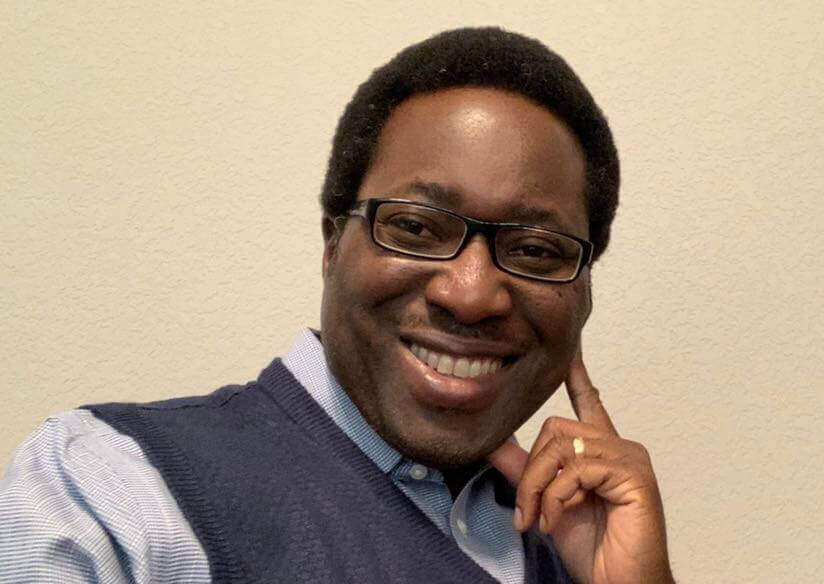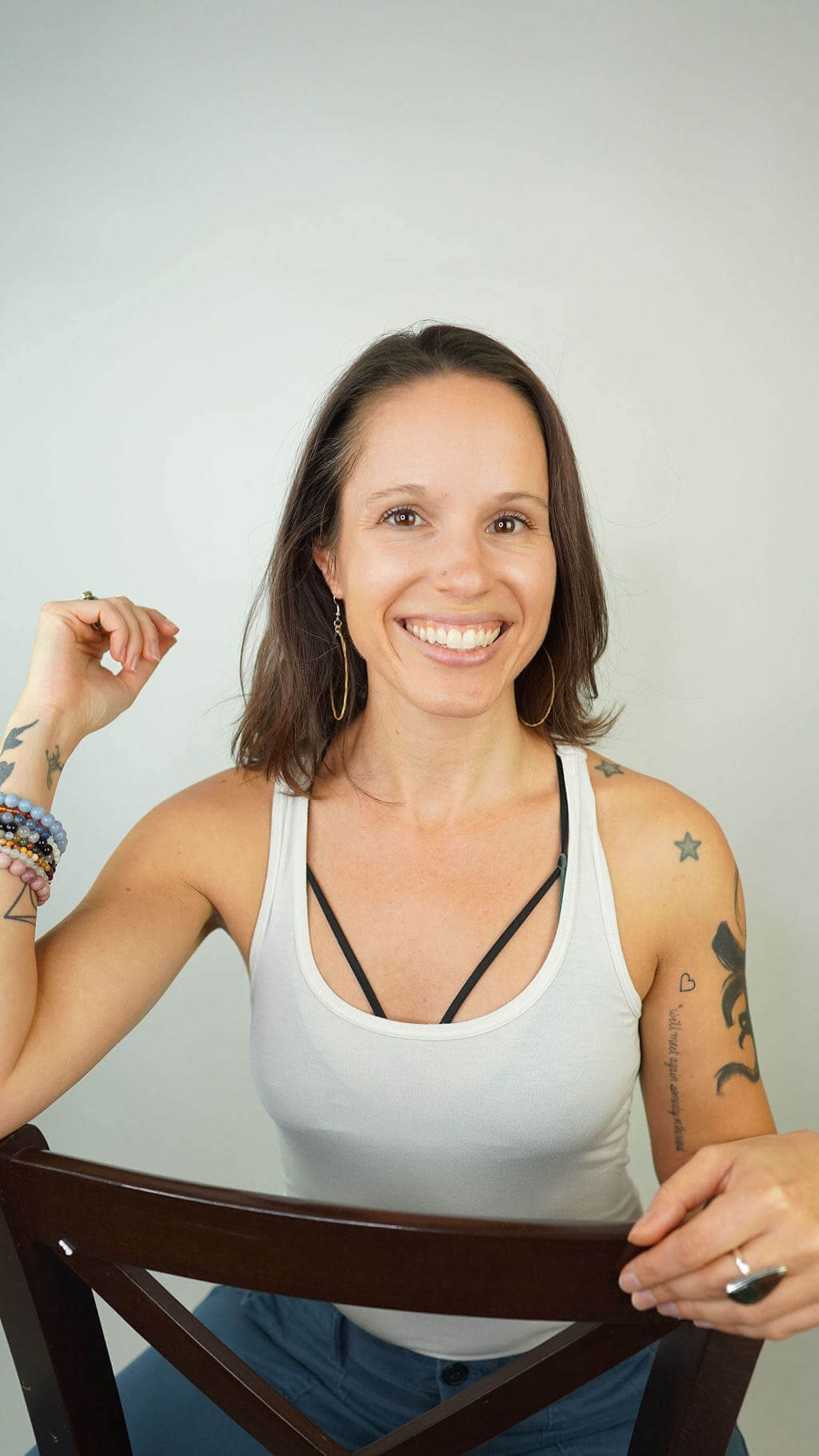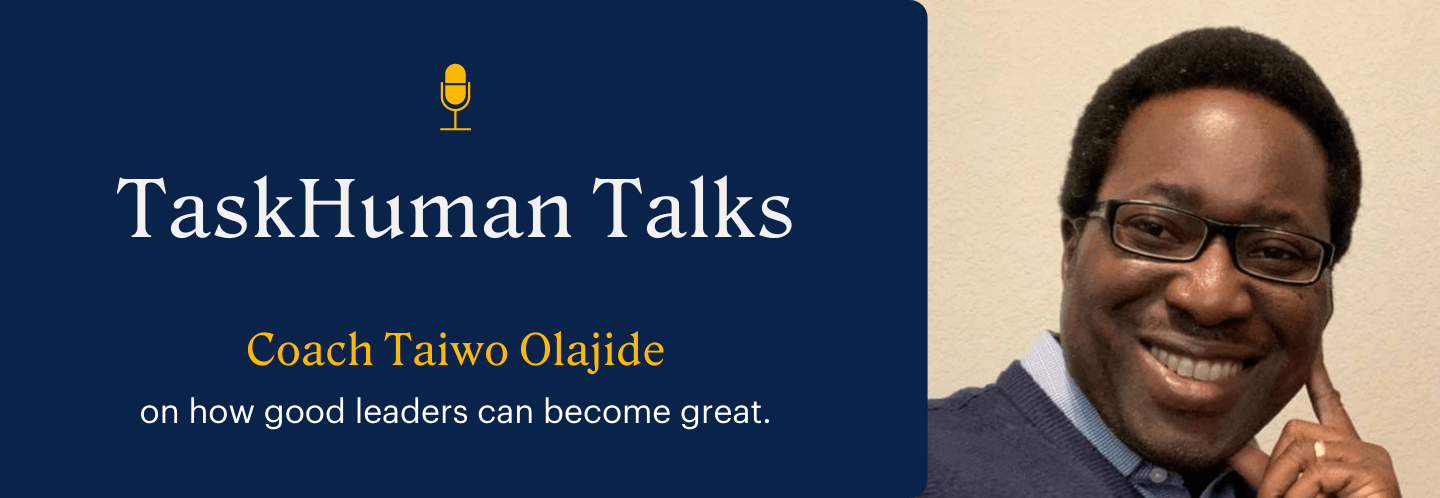Good Leaders Grow Through Self-Awareness





Coach Taiwo Olajide helps new leaders develop their “X Factor”—that special, intangible quality found in great leaders. Developing the skills to have crucial conversations, establishing workplace boundaries, and learning how to listen are key ways Taiwo works with companies to develop their managers and leaders.
In this TaskHuman Talks Podcast episode, coaches Jamie Carroll and Taiwo Olajide discuss the skills and characteristics great leaders have, and how the most important characteristic you need to develop as a leader is self-awareness.
Better leaders are self-aware. If we’re willing to do the work to develop our self-awareness, then that means we’re also willing to identify our strengths and weaknesses. We can recognize situations and circumstances when we’re not the expert and learn from those who have more knowledge.
“The world is a messy place. Life is messy,” affirms Taiwo. He continues, “So ‘How do I become clear? How do I create clarity for those I lead?’ You always have to start with yourself. Until you have purpose for yourself, you can’t have purpose for others.”
For Taiwo, self-reflection helps us find our purpose. Once we understand what we’re called to do, it’s easier to put our purpose into practice, resulting in clarity for ourselves and clarity for our teams. They can better understand who we are and what we—as leaders— need to do for the team.
As leaders, if we’ve explained the goals to our team well, they should understand what they need to do and what the priorities are. But sometimes, leaders can lose sight of which projects to prioritize and muddy the waters for leaders and team members alike.
For Taiwo, everything being labeled a priority is a “false narrative.” It cannot be true by the simple definition of what a “priority” is. So, if your “to-do” list is becoming too long and you’re feeling overwhelmed, it’s time to take a step back and rethink your list.
“What do I need to say ‘no’ to in order to say ‘yes’ to this new thing,” Taiwo encourages asking.
To help reevaluate your workload and effectiveness as a leader, Taiwo suggests using the “Four D’s.” They are:
Delegating tasks may be difficult for some people, but Taiwo affirms it’s an important skill leaders should embrace. Delegation helps your team develop their skills and abilities, allowing them to take on more projects and increase in capacity as your team grows.
“Delegation is not abdication,” Taiwo says. In other words, giving someone on your team a chance to perform at a higher level doesn’t mean you lack that specific skill set.
There will be times when you disagree with someone at work, and that’s completely normal. Having a space where different views are welcome is important in growing a team and a business. When conversing with team members or colleagues about the issue, sometimes the conversation can shift from what Taiwo calls a “regular conversation” to a “crucial conversation.”
As someone developing their leadership skills, you need to know when you’re in a Crucial Conversation. Here are the signs:
This can also look like moving “from dialogue to debate,” as Taiwo describes. The problem? Someone needs to win a debate, which means there will be at least one person feeling uncomfortable at the end.
To diffuse the conversation, remove some of the energy and focus on the psychological safety of your team. Take a break, get a glass of water, and encourage a reset and reconnecting activity to acknowledge and stop the growing tension in its tracks.
To get the conversation started again productively, ask questions. Taiwo shares that leaders should “build the habit of question thinking.” By being active listeners, they learn about their team members and understand what each person needs in order to do their job to the best of their abilities and feel safe in their environment.
“When you’re always giving answers, it becomes problematic,” Taiwo says. “Because answers are closed doors. Questions are open doors.”
The more questions you ask, the more your team will feel the freedom to be creative, and you’ll ultimately have better project outcomes. When you allow your colleagues and team to develop the solutions, you help them grow.
“As a leader, you want to create an environment where, once you are there, everyone’s creative juices start to flow,” he says.
Head here to listen to the entire conversation between Jamie and Taiwo.
Ready to improve your leadership skills and tap into self-awareness? Connect with Coach Taiwo today and become the leader of your dreams!
Updated February 2025